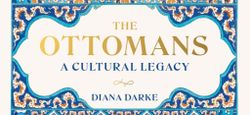Feb 7, 2024
Ottoman Refugee Policies by Diana Darke
REFUGEE POLICIES
In another remarkable difference with the Ottomans’ approach to different communities, and therefore to their acceptance and welcome of refugees, the Europeans had a tendency to evict communities based on the perceived ethnic superiority of one group over another. The expulsion of religious minorities was a common feature of the European landscape from the late Middle Ages and was based on early European efforts to build nation-states with a shared ethno-religious background. Minorities who were deemed to be threatening to the dominant group, or religious communities that did not follow the established majority religion, were cast out.
The powerful medieval pope Innocent III, who claimed supremacy over all Europe’s kings, forbade Christians from living, working or trading with Jews. The English expelled their Jews in 1291, the French in 1343, and many German states in the early 1400s. Renaissance Europe in the 16th century expelled thousands of Jews, not only from Spain and Portugal but also from Italy, the Netherlands and elsewhere. The Ottoman approach, by contrast, was based on the confident notion that Islam was indisputably the superior religion. The Ottomans’ tolerance of Jewish and Christian communities followed religious tenets as laid down in the Qur’an, combined with a dose of pragmatic economic and political realism. Their strategy ensured Muslim dominance, and made conversion to Islam politically and economically attractive. This was the main reason why so many Christian communities withered over the centuries in the Muslim lands on the eastern and southern shores of the Mediterranean, sometimes even to extinction.
In the middle of the 15th century a rabbi wrote from Istanbul to his Jewish brethren back in Spain:
Here in the land of the Turks we have nothing to complain of. We possess great fortunes; much gold and silver are in our hands. We are not oppressed with heavy taxes, and our commerce is free and unhindered. Everything is cheap and every one of us lives in peace and freedom. Here the Jew is not compelled to wear a yellow star as a badge of shame, as is the case in most of Germany, where even wealth and great fortune are a curse for a Jew because he therewith arouses jealousy among the Christians and they devise all kind of slander against him to rob him of his gold. Arise my brethren, gird up your loins, collect all your forces and come to us.
In 1492 the Spanish Sephardim, ‘reviled by the Inquisition’, were stripped of their wealth and possessions and banished from their homeland by Ferdinand and Isabella of Spain. In all, about 100,000 of these Jewish refugees set sail for Istanbul, where Sultan Beyazıt II had ordered that they be allowed unimpeded entry. The Jews in Istanbul were given more freedoms under the Ottomans than in other parts of Europe. As a result, from the 16th century onwards the Ottoman Empire had the largest Jewish communities in the world, with Istanbul and Thessalonica their biggest centres. It was the same for the Greeks, who also enjoyed cultural and religious rights. Along with other non-Muslims, all the Sephardim had to do was to pay the poll tax, a sum that was lower than their tax obligations in Catholic Spain, and to pledge obedience to the Ottoman state. The sultan is said to have mocked the Spanish monarch’s lack of wisdom: ‘You call Ferdinand a wise king, he who makes his land poor and ours rich!’
Indeed, anti-Semitism baffled the Ottomans. When occasional anti-Jewish riots broke out in Constantinople, they were invariably stirred up not by Muslims, but by Christians accusing the Jews of the ritual kidnapping, murder and eating of Christian children. Jews enjoyed the protection of the Ottomans against Christian persecution till the end of the 19th century, and Jews remain the largest minority in Istanbul today.
Charitable giving was also an essential tenet of Ottoman statecraft. During the 1845–52 Irish Potato Famine, for instance, which saw 1 million dead and the mass exodus of 1 million more, the Ottoman sultan declared that he was ready to send £10,000 to help Ireland’s farmers. Queen Victoria intervened, however, and asked that the sultan send no more than £1,000, since she herself had sent only £2,000. He complied, to spare her embarrassment, but in secret also sent five ships laden with food. The English courts tried to block the shipment, but the food arrived and was delivered by the Ottoman sailors. The story is the subject of an Irish–Turkish film called Famine, released in 2021, with profits donated to UNICEF.

By undefined
2 notes ・ 1 views
English
Beginner